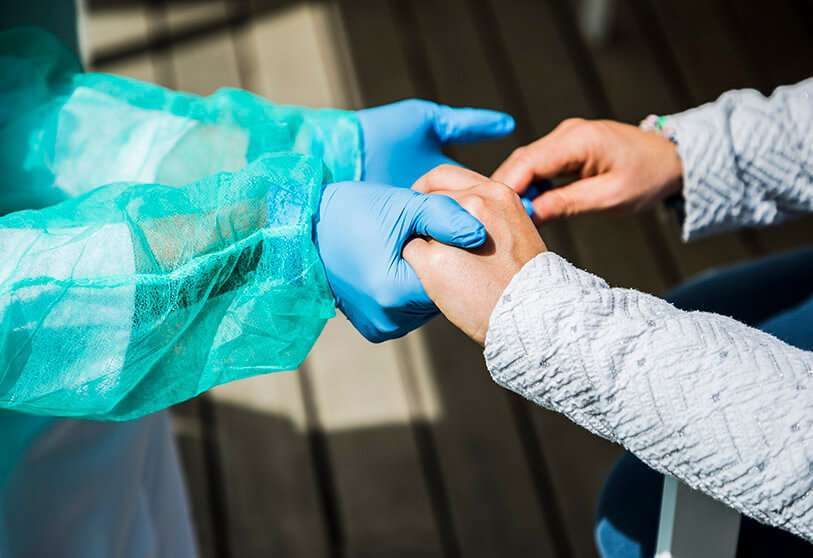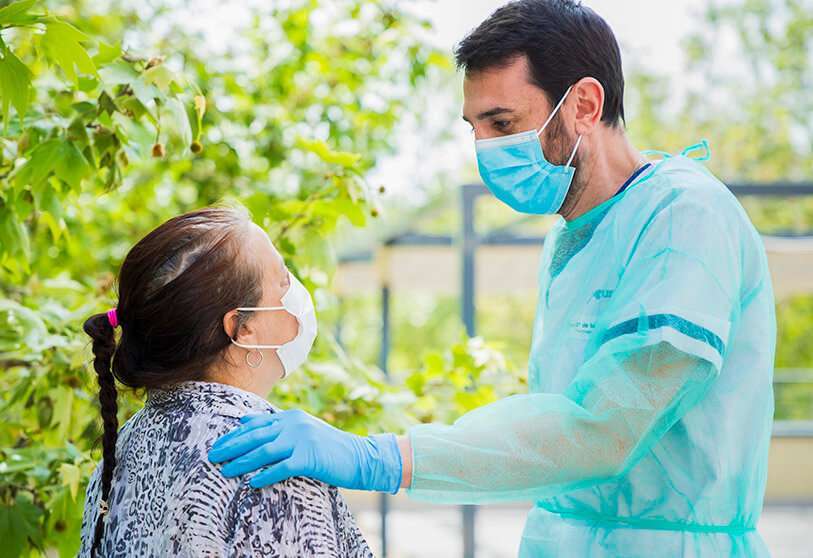The "la Caixa" Foundation assisted 56,730 people in the end of life and mourning process during 2020

The Program for the Integral Care of People with Advanced Diseases of "la Caixa" Foundation was born in 2009 as a pioneer program in emotional and spiritual care in palliative care, end-of-life processes and bereavement, and since then it has attended 204,665 patients and 276,748 family members.
Since the program's inception in 2009, 2020 has been the most intense year for professionals from the 44 EAPS (Psychosocial Care Teams) that are currently working in 132 hospitals throughout Spain and 133 home support units.

These teams are made up of 230 psychologists, social workers, nurses, doctors, pastoral workers and more than 1,000 volunteers. End-of-life and bereavement care in extreme circumstances such as those that have occurred as a result of the pandemic has also been the subject of work by the program's professionals, who have had to intensely increase their efforts to maintain their care work in such complicated conditions as those that have arisen in the hospital environment. In these circumstances, EAPS have increased their work accompanying not only people who were in an end-of-life situation, but also people seriously affected by the virus of COVID-19, their families and the professionals who were caring for them.
The harsh months of the pandemic have made a taboo subject like death more visible to society as a whole. This is confirmed by Montserrat Esquerda, director of the Borja Institute of Bioethics and collaborator of the program: "The pandemic has brought us many deaths, unprepared deaths and unexpected deaths. We can now say that we are more prepared than before the pandemic to talk about death and the work done in palliative care units".
Veronica Linares, psychologist from the EAPS in Tarragona, contributes her vision after what she experienced during the crisis: "One of the things we have detected is the need to offer comprehensive care to the sick. The body and health are taken care of, and it is a challenge to move to a more psychosocial paradigm". COVID-19 has highlighted the importance of this type of care and that the psychologist has more presence in the health system and can perform this psychological, spiritual and relational accompaniment. Until now we have been working with the dualism between body and soul, but we are already living a moment in which we can integrate both parts and treat them as a whole.
In this sense, the work of the EAPS has also had more visibility and value in the social and health field, generating some transformations in the forms of accompaniment, such as the use of online formats to attend at a distance; the promotion of new initiatives to cover emergencies and new realities; and also in the model of collaboration with health professionals, promoting their total integration in the teams.

The Program for the Integral Attention to People with Advanced Diseases, framed in the Palliative Care Strategy of the National Health System, provides people in end-of-life situations and their families with warm and personalized attention that complements the work that the palliative care units do in hospitals and at home. Its purpose is to achieve an integral attention based on taking care of the emotional, social and spiritual needs of the person in their environment, and to support the professionals who accompany them.
The scientific evaluation of the program concludes that the psychosocial attention offered responds to the needs and improves in 90% the symptoms caused by the illness and that they harm the psychological and emotional state of the patients assisted. The study establishes that 92% of the sick people qualify as excellent or very good the attention received, and almost 90% assure that they have been able to solve difficult issues (most of them, about communication and relationship with the family and the environment) thanks to this support.









